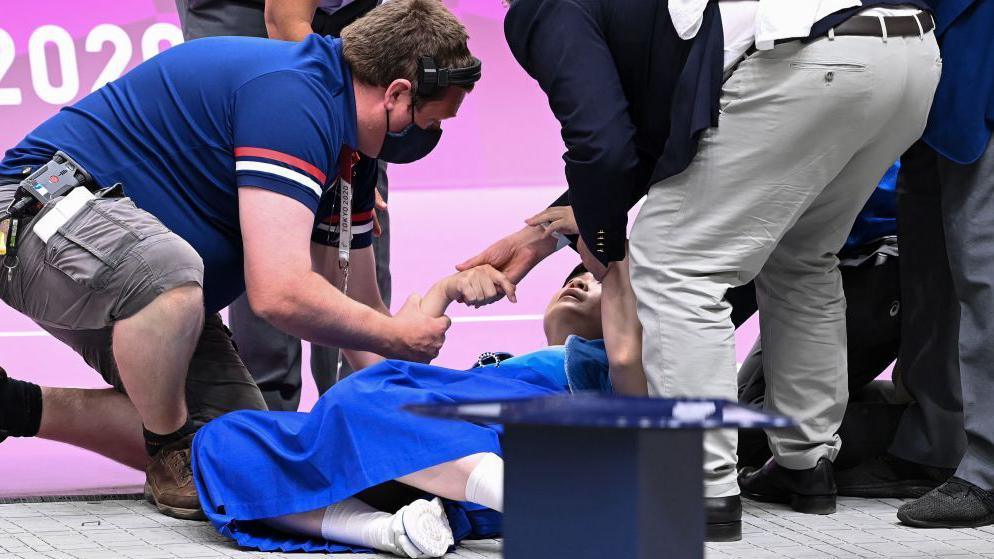Olympics 2024: how extreme weather could impact Paris games

- Published
The summer Olympics and Paralympic games in Paris are just over a month away and there is concern about the potential effects of extreme heat.
Some parts of Europe have already registered temperatures over 40C and it is not unreasonable to suggest that elsewhere in Europe will experience heatwaves in the coming months.
In a report published on Tuesday, Lord Coe, President of World Athletics, says ŌĆ£climate change should increasingly be viewed as an existential threat to sportŌĆØ.
Intense heat could affect the events, competitors, spectators and officials.
Changing climate of Paris
We don't know what the forecast will be for Paris during the Olympic period, but Meteo France ŌĆō the national weather service ŌĆō has said that summer is likely to be .
France has experienced deadly summer heatwaves in the past.
The highest recorded temperature in Paris is 42.6C set at the end of July 2019.
And more recently in 2022, during the Olympic period, a lengthy heatwave saw maximum temperatures reach 36C.
That year the National Institute of Statistics and Economic Studies in France estimated heat-related deaths of 11,000 throughout the summer.
At the last Olympics in Tokyo in 2021, extreme heat made it "torturous" for athletes and volunteers, according to local meteorologists.
It was the hottest Olympic Games on record with sweltering temperatures of 34C and humidity of 70%, which would have made it feel like 47C.
Tennis player Daniel Medvedev spoke of ŌĆ£dying on courtŌĆØ during the heat of a match.
Other competitors vomited and fainted on the finish line because of the high temperatures.
- Published7 August 2021
- Published30 July 2023
In the report by the British Association for Sustainable Sport, statistics show that maximum temperatures in July and August in Paris have warmed by an average 2.2C since 1924.
Summer heat in Paris is intensified by the urban heat island process where the amount of concrete in built-up areas absorbs more heat than a rural area.
This can make night-time temperatures stay higher. In Paris, since 1924, minimum temperatures have increased by nearly 3C.
Tropical nights ŌĆō where the temperature doesnŌĆÖt go below 20 C at night ŌĆō have also significantly increased to 84 nights in the last decade, compared to only four nights in the period 1924ŌĆō1933 according to Climate Central, joint authors of the report.
Cooling off at night is a particular concern to some athletes.
Great Britain rower Imogen Grant said, ŌĆ£Extreme heat negatively affects recovery because it can be hard to sleep well when it is so hot, and heat often suppresses appetite so makes it hard to eat enough to recover and train well.ŌĆØ
Spanish rowers exhausted after finishing a race in the Tokyo 2020 Summer Olympics
What precautions are there?
There are a number of recommendations from the report which included feedback from athletes who experienced the heat in the Tokyo 2020 Summer Olympics (which were delayed to 2021 because of the Covid pandemic).
Scheduling events that are outdoors or particularly physical to cooler periods of the day is suggested.
Keeping athletes safe by having sufficient breaks and limiting heat exposure will be a priority.
There are a number of events that have temperature thresholds which if exceeded lead to longer water breaks or even stopping the event.
The triathlon would be postponed if the heat index exceeds 32.2C and the swim leg would be cancelled if the water temperature rises above 33C.
Spectators are being advised to keep a close eye on the forecast and plan accordingly.
Finding shade in the middle of the day, staying hydrated and using fans to reduce your temperature are recommended.
- Published25 July
- Published18 July 2022